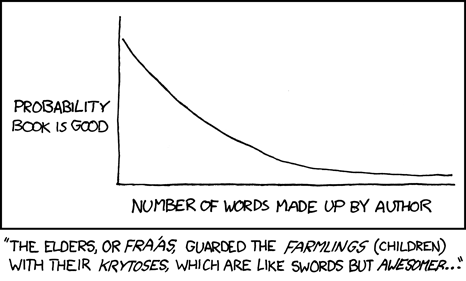Naruzeldamaster
 Sage
Sage
Worlds that are largely based on 'reality' (like my current project) are fine, I can just use real world cities etc and add the fictional stuff as needed.
I realize now that I'm incredibly lazy sometimes with naming fictional countries/planets.
My go to method is look up x or y significant thing in that country (say an Oasis) and use the translated word for that thing in the language of the region it takes the most inspiration from.
This technique has it's uses, even with characters, but sometimes I feel like I am using it a bit too much, especially with google translate being one of my few resources for translating from english into other languages.
The other method I use is a random name generator which....works, especially for characters, but also feels uninteresting.
I realize now that I'm incredibly lazy sometimes with naming fictional countries/planets.
My go to method is look up x or y significant thing in that country (say an Oasis) and use the translated word for that thing in the language of the region it takes the most inspiration from.
This technique has it's uses, even with characters, but sometimes I feel like I am using it a bit too much, especially with google translate being one of my few resources for translating from english into other languages.
The other method I use is a random name generator which....works, especially for characters, but also feels uninteresting.


 Istar
Istar Inkling
Inkling Myth Weaver
Myth Weaver